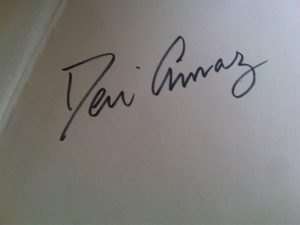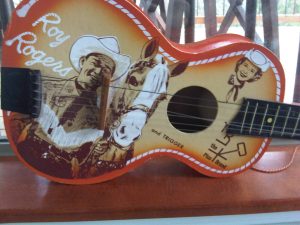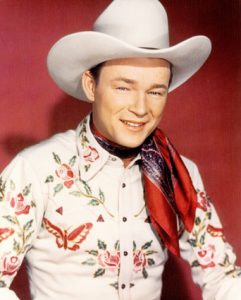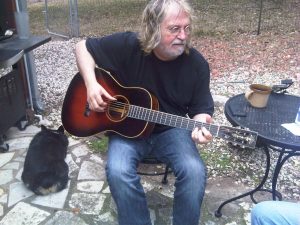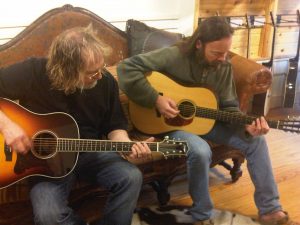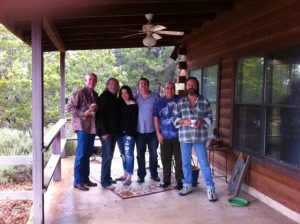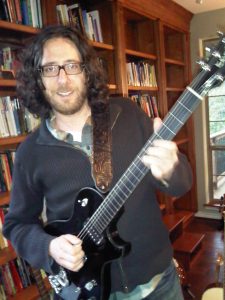Tag: music
"A Book" Lesson
I just completed reading the 1976 autobiography of Desi Arnaz, the late Cuban-born musician who married Lucille Ball and together created the legendary TV show, I Love You.
I love simple titles. His book is called A Book. It’s a joy to read. Desi was a riveting storyteller. He was smart, talented, persistent, creative, charming, and driven. He and Lucy became the most beloved television couple in history, as well as one of the wealthiest.
But he also went through hell before he ever arrived at success. As with most “overnight” successes, his career took decades to develop into something worth writing about.
What stood out for me in A Book is a lesson Desi learned from his father in Cuba. His father was mayor of Santiago. He was popular and successful. He owned land, businesses, and resort property. His father taught, “There is always a way.”
No matter what the challenge, problem, or circumstance, “There is always a way” to resolve it.
Desi saw this belief in action as a child. When the revolutionaries entered Cuba in the early 1930s, they burned down his family home, destroyed his crops, killed his animals, ran off his mother and family, and put his father in jail.
They went from a life of luxury to being homeless and penniless. They later escaped that country, went to Miami, and started a new life — with nothing at all.
But the belief, “There is always a way” kept them going.
Desi struggled, but kept working; kept taking action.
When opportunities came his way, he took them, even when he didn’t have the skills or experience on hand to pull off the opportunity. He knew he could attract or develop the skills as they were needed.
When asked if he could act, when he had never acted at all, he said, “All my life!” He then learned acting, appearing in several movies and of course later on television.
“There is always a way.”
When he and Lucy found themselves with the opportunity to be involved in a new TV show, they needed to find actors, raise funds, develop new camera methods, use a live audience, build a set, and much more — all firsts at the time with no paths to show what to do, and all with little or no money to make anything happen, and all under a time crunch that would make most people faint — they knew “There is always a way.”
When Lucy was accused of being a communist in the 1950s, Desi put on his fighting gloves and destroyed the rumor. Front-page headlines vindicated the redhead. Desi said the only thing red about Lucy was her hair, and even that was false.
Desi knew, “There is always a way.”
Reading Desi’s book was a real treat. Not only because I always loved him as Ricky Ricardo on I Love Lucy, but also because “There is always a way” is one of my beliefs, too. It’s in my book The Attractor Factor. It’s one of the prime directives in my operating belief system.
You may not know how to do something, but by taking action and moving forward you can find it, create it or invent it.
“There is always a way.”
I recently tweeted a quote from Martin Luther King, Jr. that recaps this lesson from A Book:
“Faith is taking the first step even when you don’t see the whole staircase.” – Martin Luther King, Jr.
You don’t need to have all the answers to begin working toward making your dreams come true.
You don’t need to have all the money to begin working toward making your dreams come true.
You don’t need to have all the experience or education or much of anything else to begin working toward making your dreams come true.
You just need to take action right now — while believing, as Desi proved — “There is always a way.”
Ao Akua,
PS – Right after reading Desi’s book, I read Lucille Ball’s autobiography, published after her death, titled Love, Lucy. Her early life was no party. She, too, struggled. But her persistence, talent, and hard work ultimately paid off. You can learn more principles of attracting what you want through my Miracles Coaching program. Meanwhile, enjoy Desi Arnaz in his prime and try not to smile in this early video of him that breathes the fire of life:
What's "Naturally" You?
A friend listened to the recent interview where Bob Baker* asked me questions about hypnotic marketing for musicians.
During it I plugged my music support team, from Sarah Marie and Mathew Dixon to Guy Monroe and Daniel Barrett. I also plugged my favorite singer, Michelle Malone, and talked about songwriters I love, such as Rob Thomas of Matchbox Twenty. And usually every time I mentioned someone, I gave out their website (just as I did in this very paragraph).
After it my friend said, “You’re a natural promoter.”
I smiled.
For the first few decades of my life, I had no idea what promotion was. I had to learn it. And then I had to make it second nature to me. So today it appears I’m a natural promoter.
But am I?
When I was in college in the early 1970s, broke and unhappy, a friend of mine said “You’re naturally pessimistic.”
Today people often comment, “Joe, you’re naturally optimistic.”
Well, which is it?
Am I naturally pessimistic or naturally optimistic?
What about you?
What are you “naturally” good at?
You have a tendency to lean one way or another in behavior right now based on your past habits. But you can also retrain yourself to lean in another direction with new habits.
- If you’re not happy, you can train yourself to be happy.
- If you’re not a promoter, you can train yourself to be a promoter.
- If you’re not skilled at a talent, you can train yourself to be skilled at it.
With enough training, people will look at you and say, “You’re naturally good at that.”
But we’ll both know the secret.
The secret to being naturally good at anything is focused practice.
Lots of it. I’m practicing the guitar every day. I’m writing songs almost daily. I’m reading books on singing, songwriting, and performing. I’m taking lessons. I’ve got a support team.
At one point soon, people will say, “You’re naturally good on guitar.”
What do you want to be naturally good at?
Get yourself a coach, build a support team, read, study and practice every day, and you, too, can be “naturally” good.
Naturally.
Ao Akua,
PS – * My interview with Bob Baker is at http://bob-baker-podcast.blogspot.com/2011/03/57-joe-vitale-interview-on-hypnotic.html
Decoding Your Childhood
When I was a kid I wanted to play the guitar. I told my parents. They listened and bought me a Roy Rogers cowboy guitar — made out of cardboard.
Being a smart kid, I knew the guitar was a symbol. It meant my parents didn’t believe in me. They never thought I would amount to anything as a guitar player. After all, if they had faith in me and my potential, they’d have bought me a really nice guitar.
I held that memory in my head for almost fifty years.
Fifty years!
That’s a long time to hold a grudge.
When I hooked up with Daniel Barrett, my music producer for my forthcoming album, and told him my sad Roy Rogers guitar story, he suggested I make peace with it.
He suggested I find an old Roy Rogers cardboard guitar and buy it. He thought there might be a lesson in it for me.
I didn’t think so.
But I trust Daniel and did what he asked. I searched, found a nice 1960s Roy Rogers toy guitar on eBay, and bought it.
When it arrived, I felt sick.
When I opened the box, I felt depressed.
There was that damn guitar again.
But I walked off my sadness, sat with the guitar, glanced at it every now and then, played it a little, and relaxed.
I started to remember all the warm fuzzies I had about Roy Rogers, the man, the singer, the actor, the legend.
Who didn’t like Roy Rogers?
He stood for good in the world.
He was the superman of the wild west.
It then occurred to me to get the background story on my parents giving me that guitar. After all, there might be more to what I remembered. So I called my 85-year-old father and asked him about it.
“Dad, do you remember that Roy Rogers guitar you gave me as a kid?”
“You mean that cheapee?” he quickly replied. “I drove to Pennsylvania in a blizzard to get that thing.”
“Why did you get me that particular guitar?”
“We were broke but we wanted to get you what you wanted,” he said. “We got you the best guitar we could afford at the time.”
And there it was.
The truth.
I felt tears well up in my eyes.
My parents did believe in me.
They simply struggled with money. My father was the bread winner in the family. He had an entire platoon of kids to raise. I wanted a guitar. He got me one, doing the best he could at the time.
And for almost fifty years I thought he didn’t believe in me!
My entire story was wrong.
Most likely you have stories from your childhood like this. When we’re too young to know how the world works, we make conclusions that simply aren’t true. (Actually, we do this as adults, too, but that’s a different blog post.)
“When I was a boy of fourteen, my father was so ignorant I could hardly stand to have the old man around. But when I got to be twenty-one, I was astonished by how much he’d learned in seven years.” – Mark Twain
Maybe it’s time to reexamine some of the childhood stories you still carry.
Maybe it’s time to revisit, understand or reinterpret, and forgive.
Maybe it’s time to dig out that Roy Rogers guitar and play a tune.
Pull up a chair…
Ao Akua,
PS – Now that I’ve decoded my childhood, the first song I wrote is a tribute to Roy Rogers. He was a cool guy. And if you’re a guitar collector like me, you might like to know that Roy’s own Martin OM-45 guitar sold for $460,000. You read it right. Almost half a million dollars. Roy bought it for $30 used in 1933 and never knew it was a rare guitar to begin with. It sold for more than Roy’s 1964 Bonneville convertible or his stuffed legendary horse, Trigger. You just never know the value of a guitar — emotionally or otherwise — even if it’s made out of cardboard.
The Princess Behind Fear
The songwriting workshop I attended last weekend triggered a breakthrough in me regarding fear.
During the first morning, famed singer-songwriter Ray Wylie Hubbard gave a presentation on his insights from a long career in music. He talked about many things, including fear.
He paraphrased poet Rainer Maria Rilke, from the book Letters to a Young Poet, saying fear was a dragon who turned into a beautiful princess once you faced it.
I made mental note of that insight but didn’t do anything with it. I just liked it as a way to reframe fear: it looks scary but it’s a mirage that will turn into something beautiful once you face it.
Later that same day I had a one-on-one session with famed singer-songwriter Kevin Welch. I was telling him about my songwriting and began by saying, “The one thing I’m afraid of doing…”
As soon as I heard myself say “I’m afraid,” I stopped in my tracks.
I flashed back to Ray Wylie’s talk earlier the same day.
“Fear is a dragon…who turns into a princess…once you face it…”
I suddenly realized that I was saying there was a dragon in front of me and I didn’t want to face it; I was also realizing the dragon would transform into something wonderful once I looked it in the eye.
Right then and there, I owned the very thing I feared.
I announced to Kevin that I was going to do exactly what I feared.
That breakthrough was so deep and undeniable that I still smile when I think of it.
I now feel free and empowered and unstoppable.
How?
Because I faced the dragon and it became a princess.
“Perhaps all the dragons in our lives are princesses who are only waiting to see us act, just once, with beauty and courage. Perhaps everything that frightens us is, in its deepest essence, something helpless that wants our love.” – Rainer Maria Rilke
Consider: What are you afraid to do?
I’ve often said that your wealth is hiding under the very thing you are afraid to do.
I learned this when I faced my fear of ridicule and released my 2001 book, Spiritual Marketing, which in 2005 became The Attractor Factor, and in 2006 got me into the hit movie The Secret.
My career skyrocketed when I faced down that fear.
Rilke and Ray Wylie are suggesting your fear hides a princess.
Face your fear — and meet a princess.
How cool is that?
Ao Akua,
PS – If you’re at all interested in songwriting, I highly endorse the weekend retreat held by Kevin and Ray Wylie. It takes you from wherever you are — beginner to advanced — and builds on what you bring to the table. Even Bob Dylan would dig it. I’ll be doing it again. It’s that good. It’s held outside of Austin, Texas, every month, for just a handful of people. Get details right here.
Remembering Your Future Past
Recently singer Daniel Barrett of the Austin band Porterdavis came to my home for my weekly pre-production session for my forthcoming album of original music. As he walked up the stairs into my recording studio area, I started congratulating him on something he hadn’t done yet.
“Dan, it was great to see your book on the New York Times bestseller list. I felt proud to know I was a part of that process. And I’m thrilled to see that you can still make time for our lessons with all the media requests and offers you’re getting since your book hit it big time. “
Dan stood at the top of my stairs and took in what I was saying. I was using his own process on him. He was letting it sink in. He knew he hadn’t written his book yet. But he also knew I was speaking from the future, and reporting back to him what had happened.
“The reviews say your book is a breakthrough in creativity and has implications for quantum realities. Your millions of readers are loving your new process. And I loved seeing you on national television talking about it all.”
Dan introduced me to his Remembering Process at a recent lesson. I was struggling with writing my first songs. Dan said, “It’s easier to remember than to create.”
“It’s easier to remember than to create.”
He invited me to start trying to remember what my first song was all about. How it sounded. The lyrics. The melody. The chords. He wasn’t asking me to create it; he was asking me to remember it.
I started to get high on this fun process. I told Dan it felt like an advanced form of Nevillizing. In my book The Attractor Factor I invited readers to “Nevillize” a goal by pretending it had already happened. It’s what Neville Goddard taught. It’s a powerful way to implant a goal into your being.
But Dan’s “remembering” process was as if you had gone way off into the future, way past the completion of the goal, and you were now trying to remember how you accomplished it.
The first time Dan taught me his method, I couldn’t stop doing it. Our entire conversation was around, “I remember that my first song had this cool guitar lick in it.”
I’d then play the guitar lick.
I’d then stop and wonder what was next in the song.
Dan would say, “What do you remember being next?”
Obviously, there was no actual song in that moment,* yet because I was trying to remember one from the future, it egged me to be creative in a playful, curious, fun way.
And yes, I did write that first song.
And yes, it has some catchy guitar licks and hypnotic lyrics.
And yes, I loved the process of creating by remembering.
Dan is writing a book about his method. He has to, since I saw it in his future and told him I remembered it being a bestseller.
Meanwhile, I asked him to explain The Remembering Process for you. Here’s what he emailed to me:
“This process is akin to visualization. The only drawback of visualization is that once you start connecting to universal time, visualizing can almost take something “out of” your field. Wanting it suggests that you might not get it. Remembering it affirms that somewhere in the time space continuum you have had this thing for years. Eons. Really, forever since those measurements are pretty arbitrary when placed next to the other model of time.”
I explained this process to singer Sarah Marie and then demonstrated it by saying, ” I remember hearing you received an advance of one million dollars for your next music CD.”
Being a quick study, Sarah smiled and said, “Actually, it was for 1.2 million dollars.”
This blog post is the very first public sharing of this new secret to attracting what you want. Dan gave me permission to share this with you.
I suggest you play with this.
Whatever your next goal or intention happens to be, imagine it’s done and you’re way past it in time.
What you do next is remember the thrill of accomplishing it.
And from there you can play with remembering how you accomplished it.
In another email, Dan added this thought to help explain the Remembering Process:
“They say that Michelangelo felt he ‘freed’ the David from the stone. Somewhere in the time/space continuum, that sculpture was complete and finished. He remembered the form, and allowed it to enter it’s new life.”
I remember how much you loved this process.
I remember that you used the process a lot, and bought Dan’s book when it came out, and loved it.
Remember?
Ao Akua,
PS – Daniel is in the award-winning band Porterdavis. I remember you checked them out and loved their music, too.
* Or was there?


